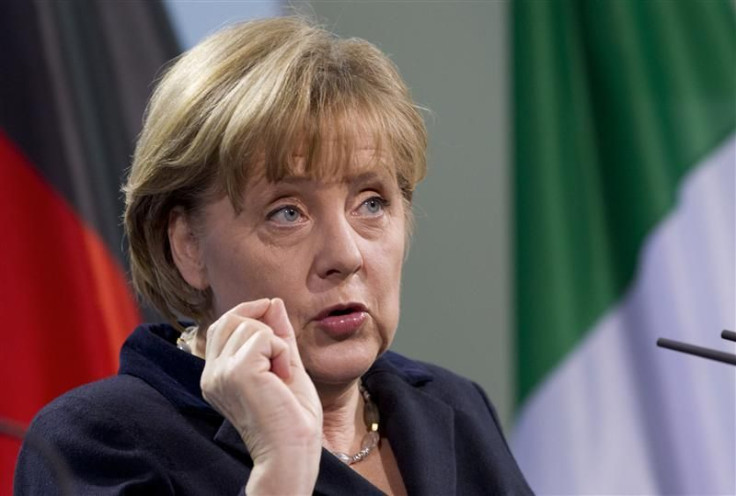Merkel Broadens Diplomatic Drive for EU March Summit

(REUTERS) -- German Chancellor Angela Merkel will gather the leaders of Austria, Sweden and Portugal next Thursday in a bid to broaden consultations on key European Union issues after criticism about Germany and France making too many big decisions themselves.
With Italy now being consulted closely by Berlin and Paris since Silvio Berlusconi's departure, and Franco-German proposals for a fiscal pact and transaction tax needing broader backing, she plans a series of cozy chats with small groups of leaders.
By starting with such disparate partners as euro-zone stalwart Austria, bailout recipient Portugal and euro outsider Sweden, she aims to canvass a wide range of opinions for an EU summit on March 1-2 which could launch the new pact on budget discipline and decide on Greek aid and future bailout funding.
The first round of these talks will take place next Thursday at Schloss Meseberg, a government guest house outside Berlin, and there are no plans for a news conference, Merkel's spokesman Steffen Seibert said.
He was vague about the agenda, saying it would be an informal exchange of views on European issues and the future of the economic and currency union ... It is certainly linked to the fact that we have to take important decisions in March and we will try to have these conversations completed by then.
The meeting takes place a day before Merkel and Sarkozy go to Rome for their second round of triangular talks with Mario Monti, the technocrat Italian prime minister who replaced Berlusconi in an attempt to convince markets Italy can cope with its debt pile.
Sarkozy and Monti visited Merkel separately in Berlin this week, giving the impression that the recent pattern of Merkozy taking major decisions for Europe bilaterally, for rubber-stamping by the rest of the bloc at a subsequent summit, may have had its day.
A crunch summit in December was marked by a very public split with Britain and there continues to be dissent from countries including Finland and Slovakia on the details of the bailouts of Greece and others.
Merkel must keep Italy, Spain and others firmly behind the chosen course on the crisis, with talk that Germany is still not taking as much responsibility as it should bubbling under the surface.
Monti told one paper this week Franco-German cooperation was crucial but it's not enough, especially in an EU of 27.
RESISTANCE?
Swedish Prime Minister Fredrik Reinfeldt and Portugal's Pedro Passos Coelho are both centre-right leaders like Merkel.
Sweden broadly backs the drive for a fiscal pact in Europe but has reservations about the Franco-German idea of a financial transaction tax in the EU. Passos Coelho is a firm supporter of German policy on the euro zone who insists countries with fiscal problems must work hard on austerity to reduce their own debts.
Austria's Werner Faymann is a centre-left Social Democrat who governs in coalition with the conservatives and backs the drive for fiscal austerity in Europe and the transaction tax.
Seibert, asked if Reinfeldt's invitation reflected German concerns about the potential spread of resistance to the fiscal pact and transaction tax, with Britain as the ringleader, said there was no concern and Reinfeldt was a valued partner.
The invitation to Meseberg has nothing to do with any such worries, he said.
Merkel's spokesman also declined to provide details of which EU leaders would attend subsequent meetings in the series, though he said there were likely to be two more.
(Additional reporting by Alexandra Hudson and Gernot Heller; Editing by Patrick Graham)
© Copyright Thomson Reuters 2024. All rights reserved.











